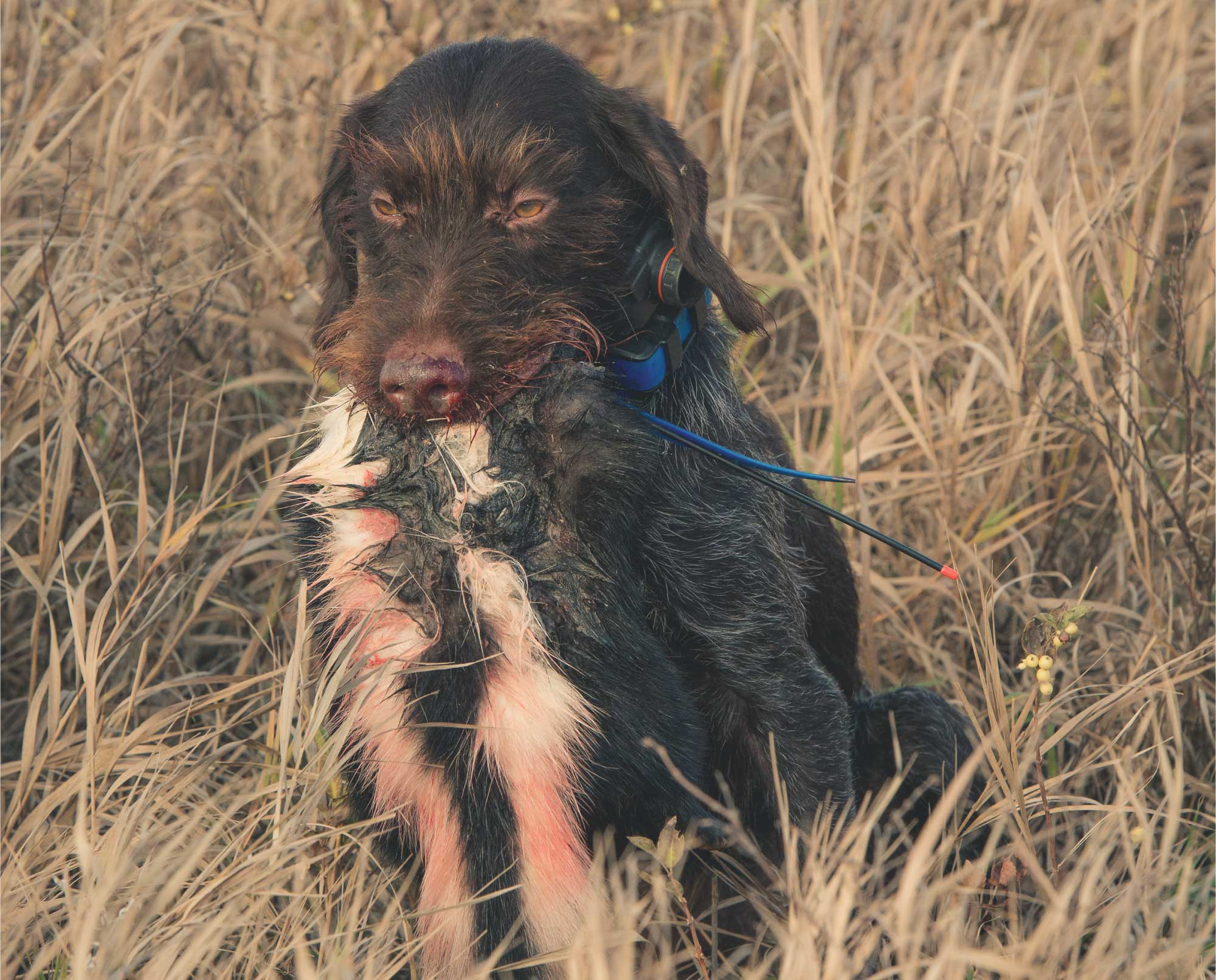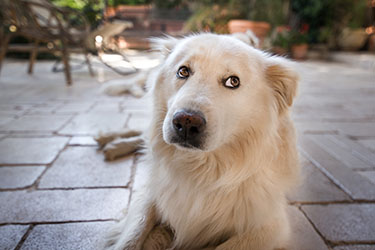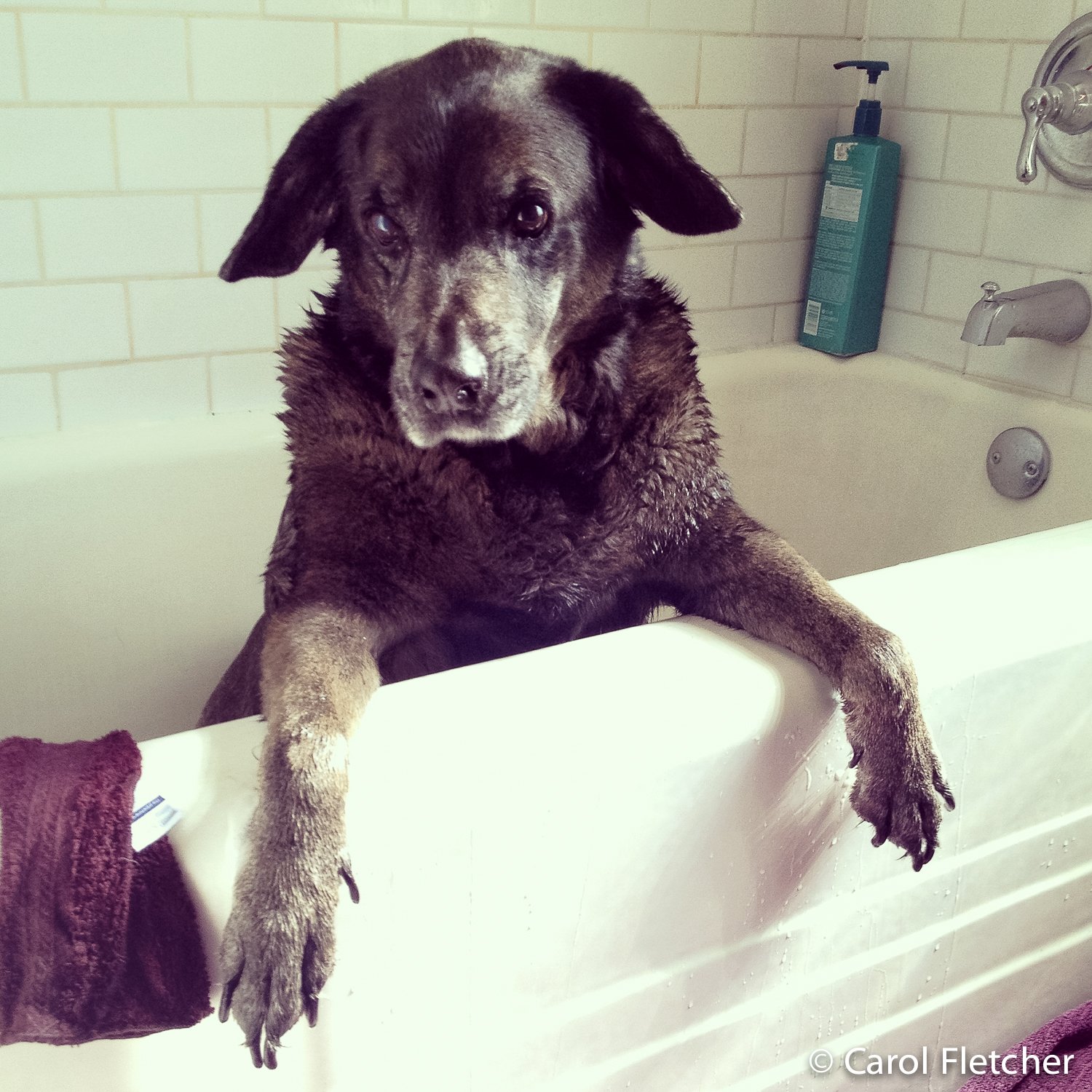If your pet is sprayed in the eyes by a skunk, keep your pet outside while washing them to prevent the skunk’s oil from spreading. Seek immediate veterinary care if your pet is sprayed directly in the eyes or mouth, and monitor for signs of lethargy, weakness, and lack of appetite.
Skunk spray in human eyes is extremely irritating but does not cause permanent damage; flush the eyes with cold water and wash the skin with carbolic soap, tomato juice, or vinegar. For cats, rinse the eyes with cool, clean water and contact a veterinarian if there are signs of inflammation or irritation.
Dogs may experience drooling, vomiting, and temporary blindness if sprayed in the eyes or mouth, so prompt veterinary care is crucial.
Immediate Actions
If your pet gets sprayed in the eyes by a skunk, it’s important to take immediate action. Keep your pet outside while washing them to prevent the oils from the skunk’s spray from getting on fabric. Seek veterinary care if your pet gets sprayed directly in the eyes or mouth, and monitor them for signs of lethargy or lack of appetite.
Flush Eyes With Water
If your pet is sprayed in the eyes by a skunk, it is important to take immediate action to minimize the irritation and potential harm. One of the first steps you should take is to flush their eyes with water. This will help to remove any skunk spray residue and soothe the irritation. Be sure to use clean, cold water and gently flush their eyes for a few minutes. Remember to hold their head steady and avoid getting water in their ears.Seek Veterinary Care
After flushing your pet’s eyes, it is crucial to seek veterinary care as soon as possible. This is especially important if your pet was sprayed directly in the eyes or if they are exhibiting symptoms such as redness, swelling, excessive blinking, or discharge from the eyes. Veterinary professionals have the knowledge and tools to thoroughly examine your pet’s eyes and provide appropriate treatment. Delaying veterinary care can lead to more serious eye problems and potentially permanent damage to your pet’s eyesight.Monitor For Additional Symptoms
While waiting for veterinary care, it is important to monitor your pet for any additional symptoms. Some pets may experience more than just eye irritation after being sprayed by a skunk. Keep an eye out for signs of lethargy, weakness, lack of appetite, or any other unusual behavior. These symptoms could indicate a more severe reaction to the skunk spray and may require immediate attention from a veterinarian. It is always better to err on the side of caution when it comes to your pet’s health.Prevent Further Exposure
In addition to taking immediate actions for your pet’s eye care, it is crucial to prevent any further exposure to skunk spray. Skunk spray contains powerful odor-causing compounds that can be difficult to remove from your pet’s fur and belongings. Keep your pet outside or in an easily washable area while dealing with the skunk spray. Avoid bringing them indoors or allowing them on furniture until they have been thoroughly cleaned. Additionally, you may consider using pet-friendly skunk odor removal products to help eliminate the smell.Conclusion
Being sprayed in the eyes by a skunk can be a distressing experience for both you and your pet. By taking immediate actions such as flushing their eyes with water and seeking veterinary care, you can minimize the potential harm and discomfort caused by skunk spray. Remember to closely monitor your pet for any additional symptoms and take steps to prevent further exposure. With prompt and proper care, your pet can recover from the ordeal and return to their happy, skunk-free self.Monitoring For Symptoms
If a skunk sprays your pet in the eyes, it is important to keep them outside while you wash them, as the oils from the skunk’s spray can be difficult to remove from fabric. Seek immediate veterinary care if your pet is sprayed directly in the eyes or mouth, and monitor them for symptoms such as lethargy, weakness, and lack of appetite.
Lethargy
Lethargy is one of the symptoms to monitor if your pet has been sprayed in the eyes by a skunk. Lethargy refers to a lack of energy or extreme tiredness.
Your pet may appear less active and may not engage in their usual playfulness. They may seem disinterested in their surroundings and have a decreased desire to interact with you or other pets in the household.
It is important to note that lethargy can be a sign of various underlying health issues. However, if your pet has recently been sprayed in the eyes by a skunk, it is important to monitor for this symptom as it could be indicative of an adverse reaction to the skunk spray.
Weakness
Weakness is another symptom to monitor if your pet has been sprayed in the eyes by a skunk. Weakness refers to a lack of strength or the inability to perform normal physical activities.
Your pet may have difficulty walking, may stumble or have unsteady movements. They may also show signs of muscle fatigue or have trouble standing up from a lying down position.
Like lethargy, weakness can have various causes, but it is important to monitor for this symptom in case it is related to the skunk spray exposure. If you notice weakness in your pet, it is best to consult with a veterinarian for a proper diagnosis and treatment.
Lack Of Appetite
A lack of appetite is another important symptom to monitor if your pet has been sprayed in the eyes by a skunk. This refers to a decreased desire to eat or an aversion to food.
Your pet may show disinterest in their regular meals or refuse to eat altogether. They may also exhibit signs of nausea, such as drooling or gagging when offered food.
A lack of appetite can be indicative of various health issues, including those unrelated to skunk spray exposure. However, it is essential to monitor for this symptom as it could be a result of the skunk spray affecting your pet’s sense of smell or causing discomfort in their eyes.
If your pet shows any of these symptoms after being sprayed in the eyes by a skunk, it is crucial to seek veterinary care promptly. A professional can assess the severity of the situation and provide appropriate treatment to alleviate your pet’s discomfort and promote their recovery.
Removing Skunk Spray
If your pet is sprayed in the eyes by a skunk, it’s crucial to keep them outside and seek immediate veterinary care. Skunk spray can be difficult to remove from fabric, so it’s important to wash them thoroughly. Monitor your pet for signs of lethargy, weakness, and lack of appetite.
Cleaning The Dog’s Fur
If your pet has been sprayed in the eyes by a skunk, it’s important to act quickly to clean their fur. Start by putting on gloves to protect your hands from the skunk spray. Isolate your pet outside or in a well-ventilated area while you clean their fur, as the odor can be difficult to remove from fabric. To clean the fur, follow these steps:- Begin by rinsing your pet’s eyes with cool water. This will help flush out any skunk spray and alleviate any discomfort your pet may be experiencing.
- Gently wash their face with a pet-friendly shampoo. Make sure to choose a shampoo specifically formulated to remove skunk odor.
- Next, lather the rest of your pet’s fur with the shampoo, making sure to thoroughly massage it in to reach all areas that may have been sprayed.
- Rinse your pet’s fur thoroughly with warm water to remove all traces of the skunk spray. Repeat the rinsing process multiple times to ensure all the shampoo is removed.
- Pat your pet dry with a clean towel. Avoid using a blow dryer, as the heat can exacerbate the skunk odor.
Using Odor Removers
Even after thoroughly cleaning your pet’s fur, there may still be lingering skunk odor. To further eliminate the smell, consider using odor removers specifically designed to combat skunk odor. Some effective odor removers include: – Skunk Off Odor Remover: This product is specifically formulated to neutralize skunk odor and can be applied directly to your pet’s fur. – Angry Orange Pet Odor Eliminator: This all-natural odor eliminator is safe for use on pets and can help neutralize the skunk smell. – De Skunk Shampoo: This shampoo is specially formulated to de-skunk pets and can help eliminate the odor effectively.Conclusion
Removing skunk spray from your pet’s eyes may seem like a daunting task, but by following these steps and using odor removers, you can effectively eliminate the skunk odor and ensure your pet is comfortable again. Remember to seek immediate veterinary care if your pet has been directly sprayed in the eyes or mouth, as this may require additional treatment.
Credit: projectupland.com
Dealing With Skunk Spray On Humans
If your pet is sprayed in the eyes by a skunk, keep them outside while washing them to prevent the oils from the skunk’s spray from getting on fabric. Seek immediate veterinary care if your pet gets sprayed directly in the eyes or mouth.
Look out for signs of lethargy, weakness, and lack of appetite in severely skunked animals.
Flush Eyes With Cold Water
If a pet is sprayed in the eyes by a skunk, it is important to act quickly to minimize any potential discomfort or damage. One of the first steps you should take is to flush the pet’s eyes with cold water. This will help to soothe any irritation caused by the skunk spray and can provide immediate relief to the pet.
When flushing the eyes, make sure to use a gentle stream of water and avoid any forceful pressure that could further irritate the eyes. Ideally, you should use a clean bowl or a cup to pour the cold water over the pet’s eyes.
Wash Skin With Soap And Water
In addition to the eyes, it is important to wash the pet’s skin thoroughly to remove any skunk spray residue. This can be done by using a mild soap and water solution. Ensure that the soap is safe for pets and avoid any harsh chemicals that could further irritate the skin.
When washing the pet, pay close attention to the areas that were directly affected by the skunk spray, such as the face, neck, and body. Use gentle circular motions to lather the soap and rinse thoroughly with clean water.
After washing the pet, it is recommended to dry them thoroughly to prevent any further discomfort. Use a clean towel or cloth to gently pat the pet’s skin dry, taking care to avoid any excessive rubbing that could cause additional irritation.
Sprayed Cat’s Eyes
If your pet is sprayed in the eyes by a skunk, it is important to rinse their eyes immediately with cool, clean water. Check for signs of inflammation or irritation and contact your veterinarian for further guidance. Ensure that your pet’s rabies vaccination is up to date.
Rinse With Cool Water
If your cat has been sprayed in the eyes by a skunk, the first step to take is to rinse their eyes with cool water. This will help flush out any skunk spray residue and provide temporary relief for your furry friend. Use a gentle stream of water to avoid causing any further irritation. Make sure to hold their head steady and angle the stream of water towards their eyes. Repeat this process a few times to ensure thorough cleaning.:strip_icc()/BabySkunkTrio186502258-57bc3d935f9b58cdfd14c1f4.jpg)
Credit: www.thesprucepets.com

Credit: northamerica.covetrus.com
Frequently Asked Questions Of What To Do If A Pet Is Sprayed In The Eyes By A Skunk
What To Do If A Skunk Sprays Your Dog In The Eye?
If a skunk sprays your dog in the eye: – Keep your pet outside while washing to prevent the oils from getting on fabric. – Seek immediate veterinary care if your dog gets sprayed directly in the eyes or mouth. – Monitor for signs of lethargy, weakness, and lack of appetite in severely skunked dogs.
What Happens If A Skunk Sprays You In The Eyes?
Skunk spray in human eyes can cause temporary blindness but no permanent damage. Flush eyes with cold water and wash the skin with soap and water, tomato juice, or vinegar to ease irritation. Seek immediate veterinary care if a dog gets sprayed directly in the eyes or mouth.
What If A Skunk Sprayed My Cat’s Eyes?
If a skunk sprayed your cat’s eyes, rinse them immediately with cool water. Check for inflammation and irritation. Contact your veterinarian to determine if professional care is needed and ensure your cat’s rabies vaccination is up to date.
Can Skunk Spray Blind Animals?
Skunk spray can potentially blind animals if it gets sprayed directly in their eyes or mouth. Seek immediate veterinary care if this happens.
Conclusion
If your pet is sprayed in the eyes by a skunk, it’s important to act quickly and take the necessary steps to prevent further discomfort and potential health issues. Keep your pet outside while washing them, as skunk spray can be difficult to remove from fabric.
Seek immediate veterinary care if your pet gets sprayed directly in the eyes or mouth. Watch for signs of lethargy, weakness, and lack of appetite in severely skunked pets. Taking these precautions will help ensure the safety and well-being of your beloved pet.

